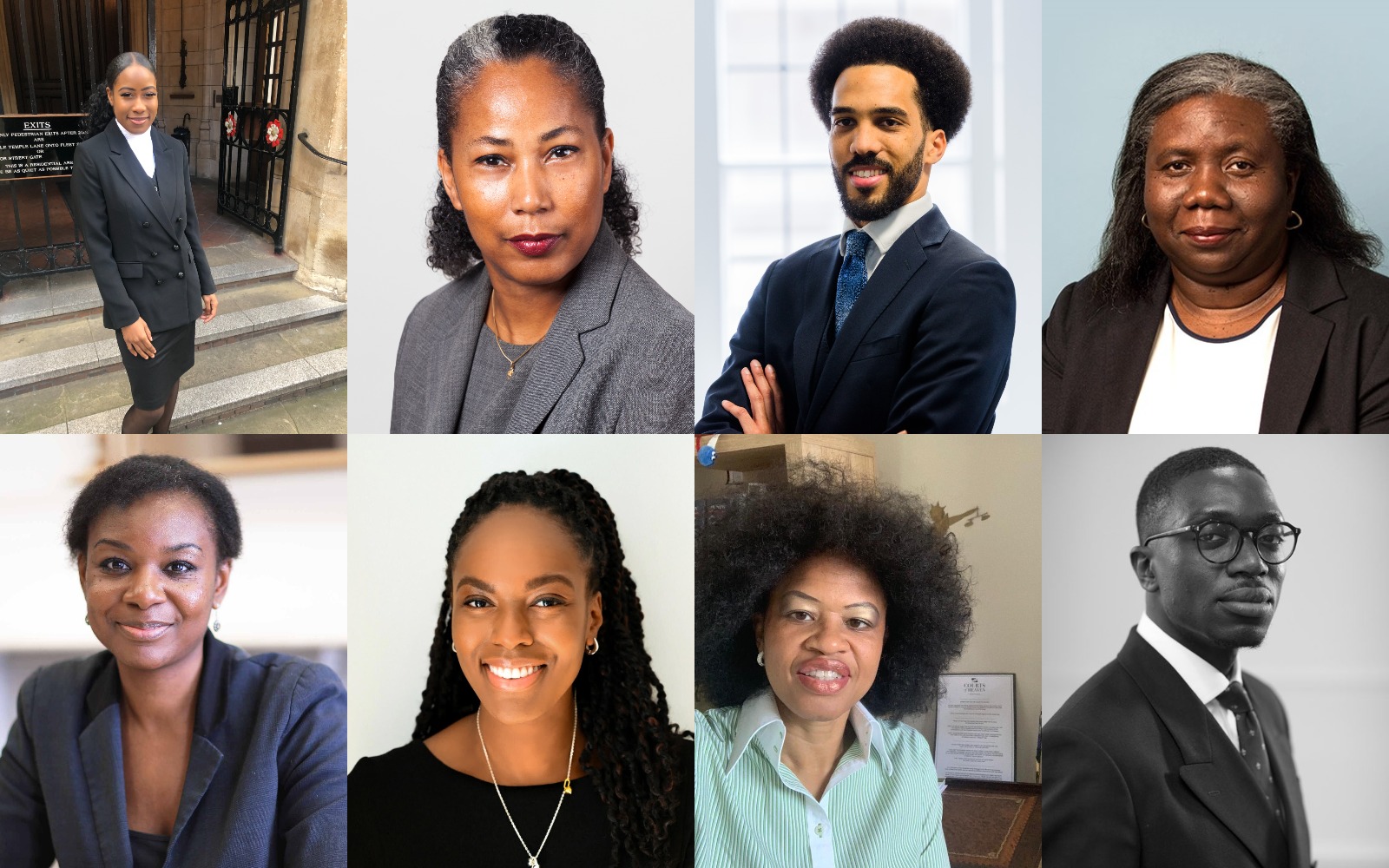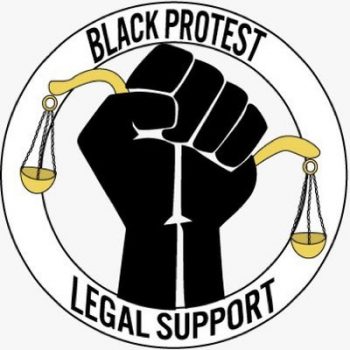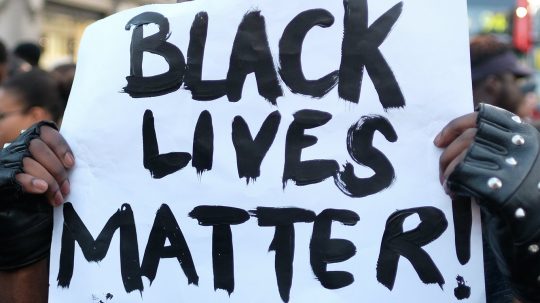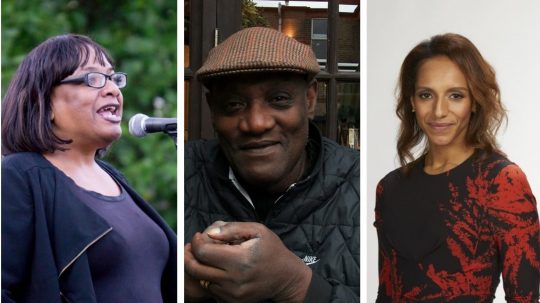The UK’s criminal justice system is under renewed scrutiny amid a wave of anti-racism protests. EachOther speaks to leading black lawyers to celebrate their work and hear their views on what reform is needed.
The death of George Floyd – an unarmed black man killed in US police custody last month – has triggered demonstrations worldwide, calling for an end to systemic racism and police brutality.
Racial disparities within the UK’s criminal justice system were highlighted in a 2017 report by MP David Lammy, which revealed that there was “greater disproportionality in the number of black people in prisons here than in the United States”. Official figures showed that black people made up 3% of the general population and 12% of the prison population in England and Wales compared to 13% and 35% respectively in the US. Among the reports’ many recommendations to address this issue is for the government to set a target to achieve a “representative” judiciary and magistracy by 2025.
Research has shown that black people face significant barriers when it comes to entering the legal profession. A 2018 publication on race equality by the Bar Standards Board found that people from black, Asian and minority ethnicity (BAME) backgrounds were less likely to be in senior levels at the Bar, noting: “There is still some way to go before the Bar is fully representative of the public it serves”. Meanwhile, a 2014 report found that one quarter of BAME barristers had personally experienced bullying, discrimination or harassment in the previous two years.
EachOther has spoken to eight lawyers from black communities in the UK about their experience of the profession, alongside their advice for black aspiring applicants.
Ife Thompson, founder of Black Protest Legal Support UK
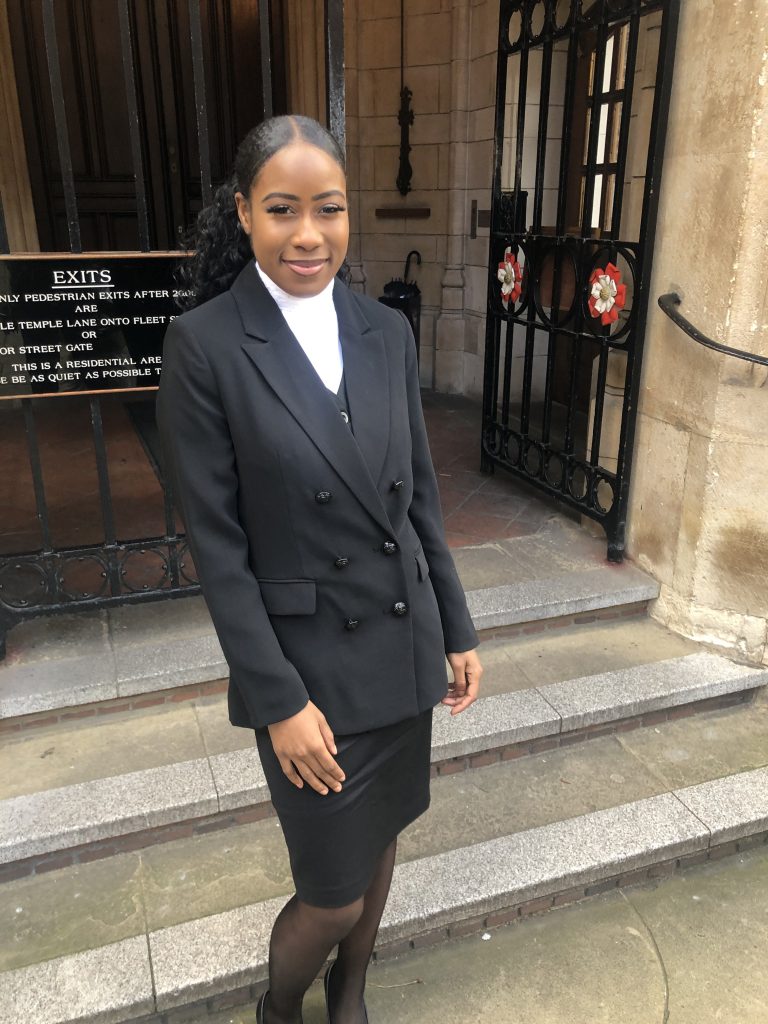
Ife Thompson, who set up Black Protest Legal Support UK. Credit: Courtesy of Ife Thompson
Ife Thompson, a Bar Professional Training Course graduate, is the founder of the “black and brown-led” Black Protest Legal Support UK – a group of more than 200 lawyers offering pro bono legal advice and support to anti-racism demonstrators.
Around 100 lawyers attended the protests on Saturday and Sunday (6-7 June) as legal observers, monitoring unlawful behaviour and policing and offering demonstrators “much-needed” information on their rights. Black Protest Legal Support UK has also set up a referral service, where protestors can access free legal support.
Thompson said it would be difficult to suggest any specific injustice within UK law that could be addressed as a step towards tackling structural racism because “the whole criminal justice sector is intertwined”. She added: “Even if one element is fixed, and the others are not, the issues will remain the same.” However, Thompson is calling for all 35 recommendations in the 2017 Lammy Report, which examined the treatment of BAME people in the criminal justice system, to be implemented. “I think this is one thing that would help tackle structural racism in the criminal justice system,” said Thompson.
Among the report’s recommendations is also to require the Ministry of Justice (MoJ) and other bodies in the criminal justice system to publish all datasets held on ethnicity. Where possible, it should redact all identifying information passed on from the police so as to allow “the Crown Prosecution Service to make race-blind decisions,” it added.
Thompson encouraged black people who are looking to join the legal profession to get work experience and join a group that will support them, such as Black Solicitors Network or the Criminal Bar Association.
Yvonne Kramo, barrister at 15 New Bridge Street
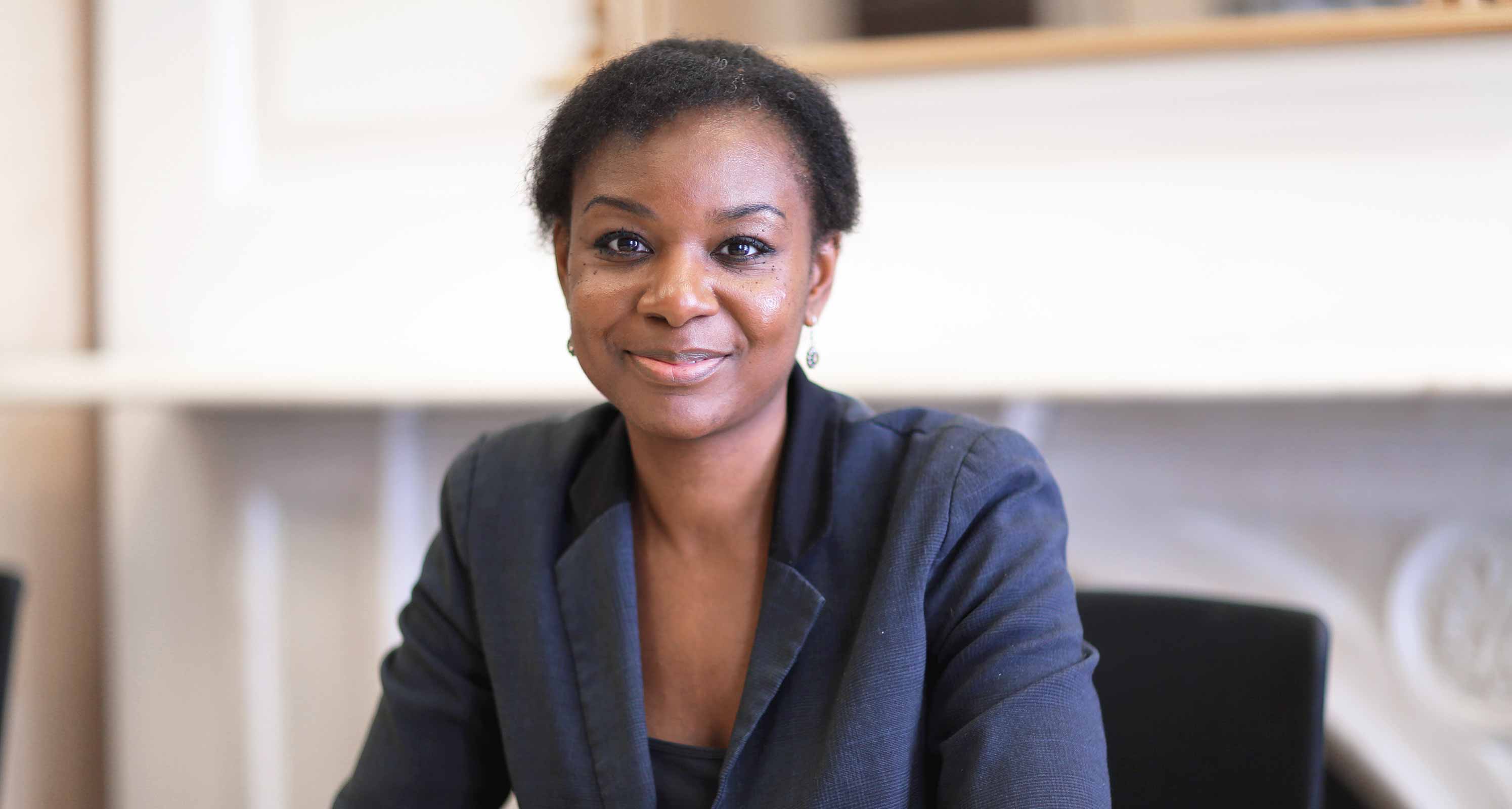
Yvonne Kramo. Credit: Courtesy of Yvonne Kramo
Yvonne Kramo, who was a legal observer at the anti-racist protests in London on Saturday, said that her interaction with protestors was an “overwhelmingly positive” experience. Despite this, she said that police caused “frustration and distress” when they reportedly kettled protestors for several hours throughout the night on Sunday and into the early morning.
“As a black lawyer, I am keenly aware of the importance of black representation in my profession,” she explained. “Equally, I believe that it is important to have black legal observers on the ground for Black Lives Matters protests to ensure that black voices and perspectives are heard and amplified.”
She said that an end to systemic racism would require “fundamental change to our political, economic and social systems”.
Allison Munroe QC, barrister at Garden Court Chambers
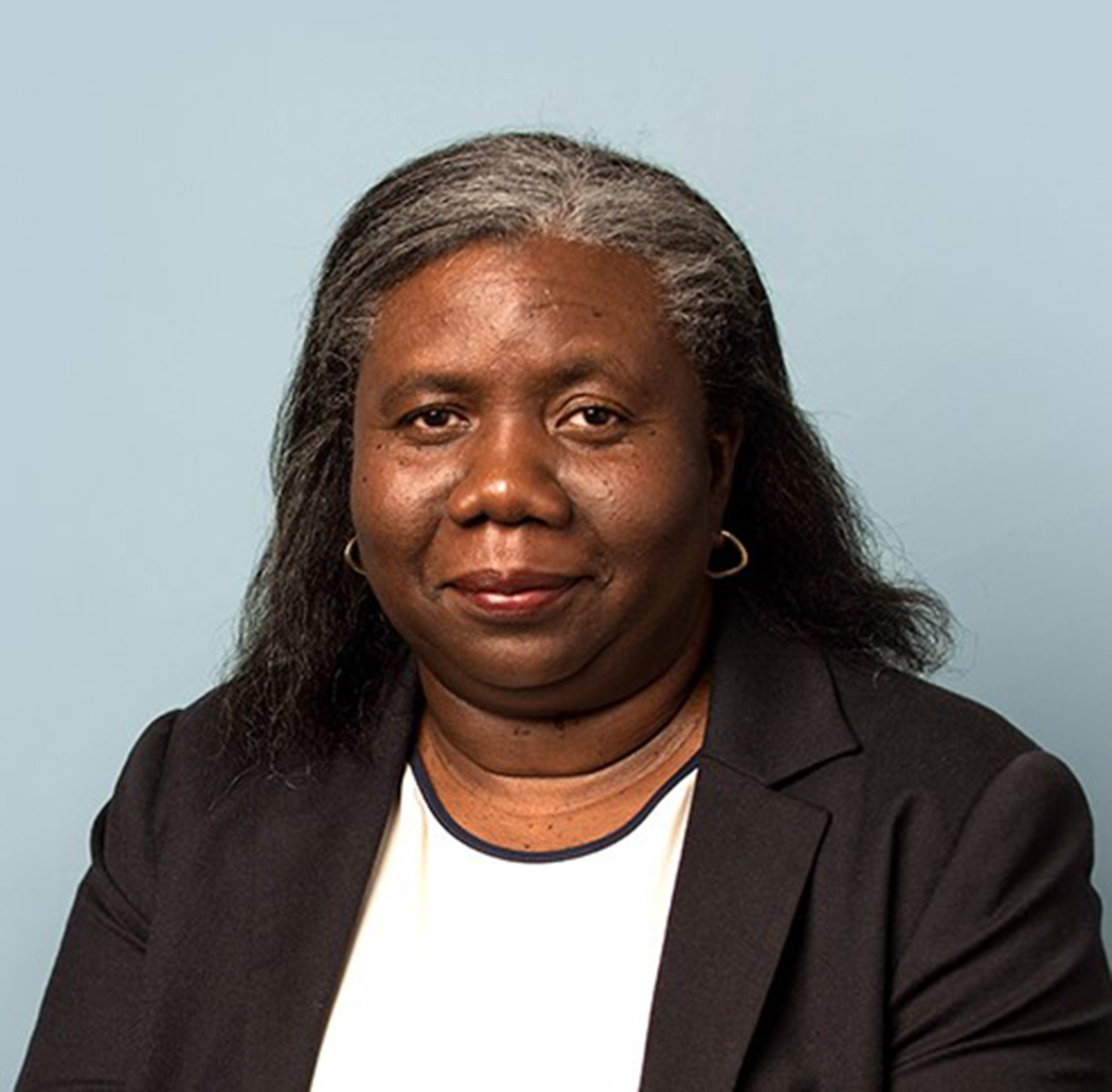
Allison Munroe. Credit: Courtesy of Garden Court Chambers
In the context of deaths in custody in the UK, these injustices shine a light on how black lives remain devalued
Allison Munroe
Like Thompson, Allison Munroe said that it is “difficult to hive off one particular injustice, policy or law” when it comes to tackling structural racism. “Structural racism does not operate in silos,” she said. “When structures and systems are not fit for purpose be that in education, policing, mental health provisions, access to employment opportunities etc; they have to be dismantled and root and branch changes made. That involves changing the mindset, rationale and motivating forces of organisations both internally and at a societal level.”
However, Munroe highlighted that policing stands out as “one injustice which remains so fundamental and resonates for black communities throughout the world”. While black people make up 3% of the UK population, they accounted for a disproportionate number – 8% – of deaths in police custody between 2010 and 2019. “In the context of deaths in custody in the UK, these injustices shine a light on how black lives remain devalued,” added Munroe. “If there is not that basic respect for black life, what prospects are there for wider societal changes to tackle racism.”
Her advice to young aspirating black lawyers? “Do not limit yourselves or your goals,” she said. “You have earned your place at the table, so take your seat with confidence and conviction. Remember where you came from and what your presence represents not only to the black community but wider society. Support each other because when one rises we all rise.”
Michael Etienne, barrister at No5 Chambers
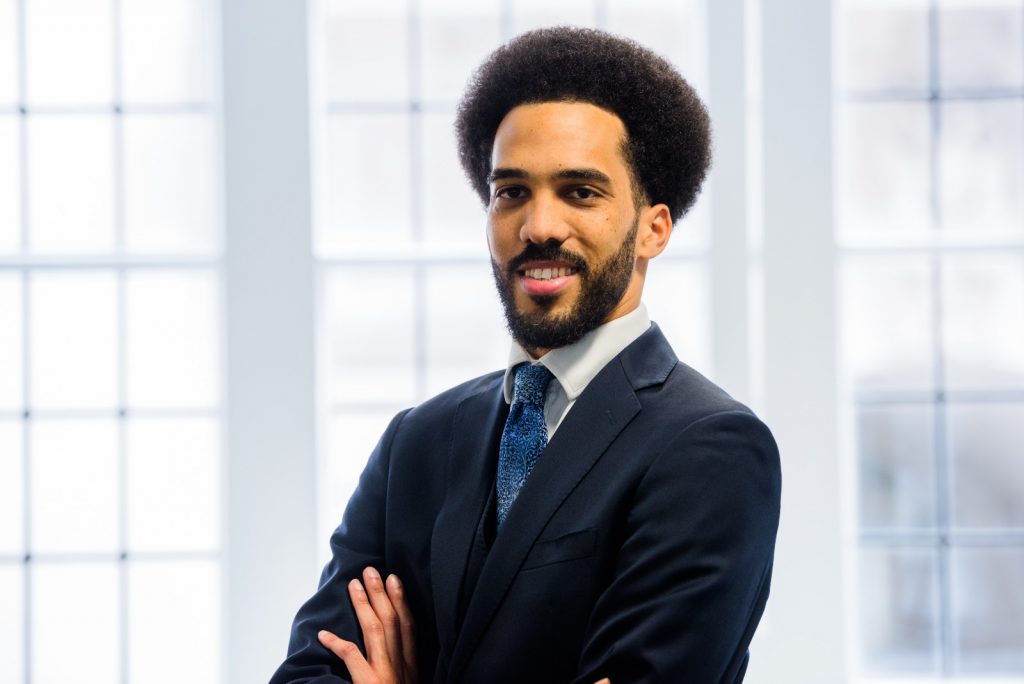
Michael Etienne. Credit: Courtesy of Michael Etienne
Ultimately, enduring change will only happen when those who benefit most from the privileges of our current structures are prepared to acknowledge and then relinquish them
Michael Etienne
Michael Etienne, a barrister and member of the steering committee of the Black Barristers’ Network, said that there needs to be more black lawyers in the profession because “it is critically unrepresentative of the population it is supposed to serve”. Commenting on the premise of EachOther’s questions, he cautioned against the suggestion that “it is the first job of black people” to fight racism. “In reality, we, like many of those in marginalised communities, fight the discrimination we face because too often our lives depend on it,” he said. “Ultimately, enduring change will only happen when those who benefit most from the privileges of our current structures are prepared to acknowledge and then relinquish them.”
Etienne, who is also part of the Black Men In Law Network, has pledged to provide pro bono legal advice to anti-racist protests on behalf of Black Protest Legal Support UK, and has also lent his support to groups including London Campaign Against Police and State Violence, which he is also part of, Green & Black Cross, Manchester GBC, and Scottish Activist Legal Project (SCALP).
He pointed to official data showing that black and mixed race children are significantly more likely to be permanently excluded from school when compared with their white peers. “Exclusion directly increases their risk of being drawn into the criminal justice system, where they are already more likely to be prosecuted and more likely to receive longer prison sentences if convicted,” he explained. “It is time to close the pipeline.”
Etienne encouraged black people who are thinking of joining the profession to pursue their ambitions. “You are entitled to your place here, to practise whatever you want,” he said. “Come and take it.”
Abimbola Johnson, barrister at 25 Bedford Row
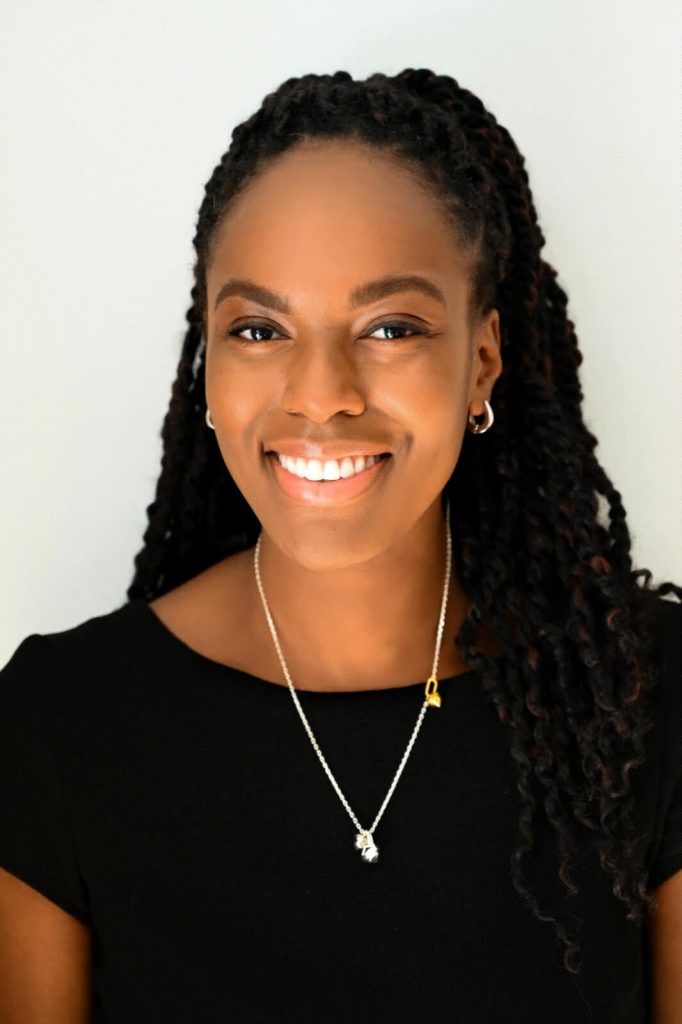
Abimbola Johnson. Credit: Courtesy of Abimbola Johnson
Abimbola Johnson said that her experience at the Bar has been positive but acknowledges she has benefitted from being privately educated and going to Oxford University.
“I’ve grown up at the Bar knowing how to ‘talk the talk’; I’ve always had members more senior than me that look like me; and I’m in a chambers that recognises the need to create environments where we talk openly about matters like this,” she said.
“However, despite all of this, I’ve still had moments of feeling incredibly overwhelmed and saddened by the systemic racism within the criminal justice system and when I’ve faced micro-aggressions or overt racism at court, I have found it hurtful, undermining and at times really difficult to cope with.”
To address structural racism within the criminal justice system, Johnson said she would get rid of the Metropolitan Police’s Gang Violence Matrix and completely overhaul sentencing laws for drugs supply as a first priority. “Both disproportionately target people from black communities. Very often vulnerable young people are over-criminalised and their futures completely decimated by that labelling and opaque policing tactics,” she added.
She encouraged younger aspiring lawyers from the UK’s black communities to “never allow your skin colour to restrict your ambition to come to the Bar, even if you don’t see yourself in the make up of the sets you want to apply to”.
Johnson added that the Inns of Court, professional associations for barristers in England and Wales, can provide mentors to normalise the application processes for you and also run various access schemes. She pointed towards a number of support networks including Learning for Lawyers Redefined; The Black Solicitors’ Network; The Black Barristers’ Network; The Law Collective; Black Men in Law Network; and BME Legal.
Susie Labinjoh, joint head of the Civil Liberties Team at Hodge Jones & Allen
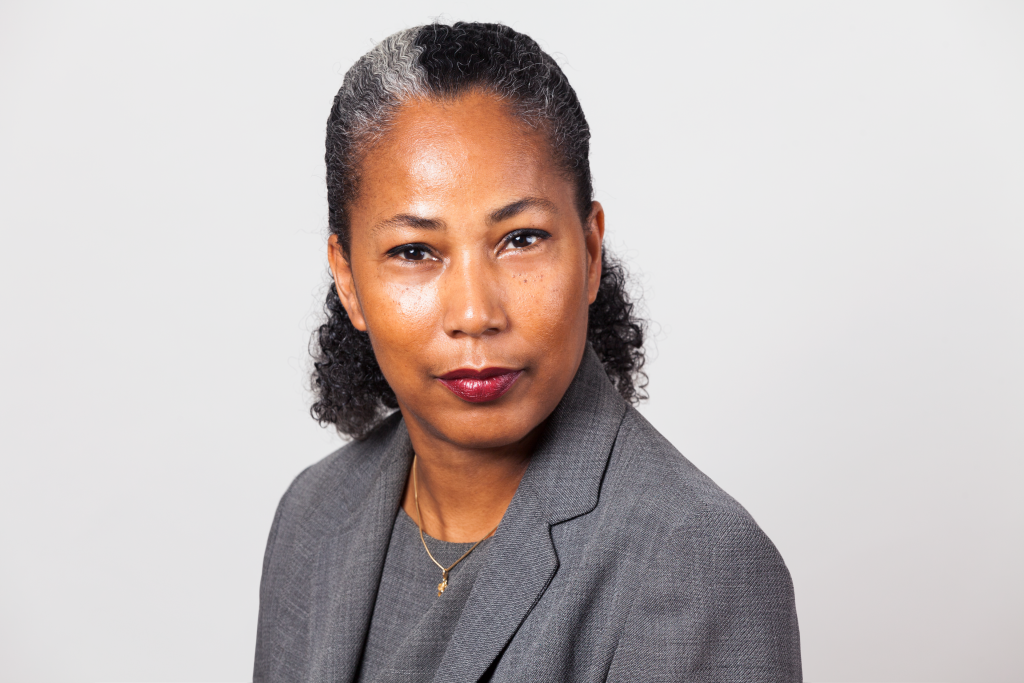
Susie Labinjoh. Credit: Courtesy of Hodge Jones & Allen
Looking at institutionalised racism, Susie Labinjoh criticised the “discriminatory manner” in which the criminal justice system operates particularly when it comes to black children and young adults. She highlighted how black young men are disproportionately stopped and searched in the UK, with this demographic more likely to receive harsher sentences than their white peers. According to Home Office figures analysed by Liberty last year, black people are 40 times more likely to be stopped and searched by police than white people. Labinjoh also flagged the Met Police’s controversial Gangs Violence Matrix, which the force has said is used to “identify and risk-assess gang members” across London.
While she said that law is a competitive profession, Labinjoh said that aspiring black lawyers should volunteer for organisations like StopWatch UK, Liberty and Inquest, and research work experience opportunities. “Believe in yourself and persevere,” she said. “It can be hard to get work experience or to know which branch of the profession might be for you if you don’t have friends or family members who are lawyers who can guide you. However, there is a lot you can do. Research solicitors firms and barristers chambers who run work experience programmes and don’t be afraid of making speculative applications.”
Shina Animashaun, barrister at Garden Court Chambers
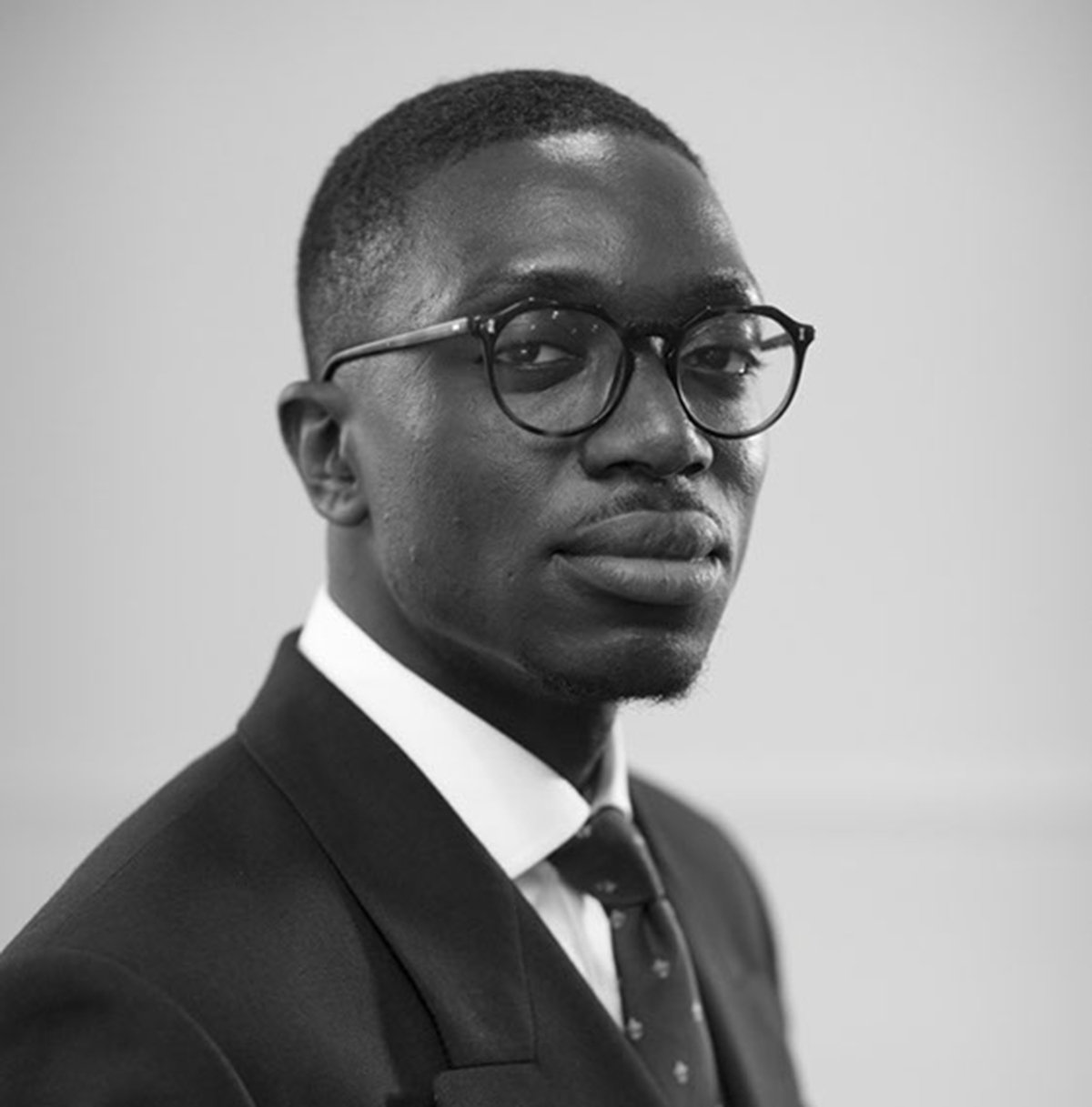
Shina Animashaun. Credit: Courtesy of Shina Animashaun
The conscious and unconscious bias of those in the police force needs to be addressed because of the way it manifests in powers such as stop and search
Shina Animashaun
Shina Animashaun said he was proud to be providing pro bono support to anti-racist protestors as part of Black Protest Legal Support UK. “It is an important cause, and people shouldn’t have to worry about whether they can afford to defend themselves when they put themselves on the line for others,” he explained.
One issue which he said still faces his black friends, family and colleagues at the Bar is the disproportionate use of stop and search on black men. “The conscious and unconscious bias of those in the police force needs to be addressed because of the way it manifests in powers such as stop and search,” he said. “This could be tackled by more robust education, training, reasonable grounds reviews, and better pre-employment screening test”.
He encouraged black applicants to the legal profession to approach organisations that will support them, including Black Men in Law Network, The Law Collective and Urban Lawyers.
Ann Tayo, barrister at Cornerstone Chambers
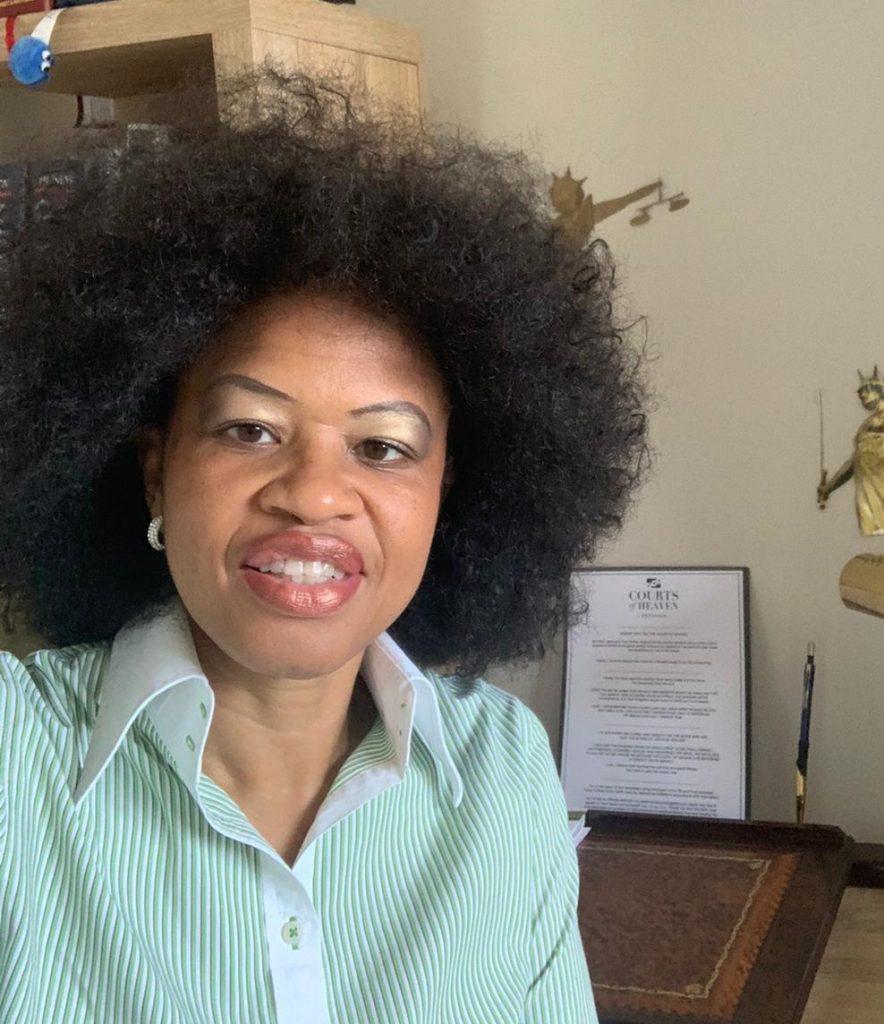
Ann Tayo. Credit: Courtesy of Ann Tayo
Ann Tayo has been a barrister for more than three decades and started her own law firm, Cornerstone Chambers, in response to the discrimination she endured in her career. She spoke of incidents earlier this year where court staff had assumed that she was someone’s wife or girlfriend rather than a lawyer. “As a black woman, you don’t know whether you are fighting racism or sexism or both,” adding that her faith in Christianity has helped her find strength to endure these challenges.
What motivated her to become a lawyer? “My parents wanted me to do something academic and I loved watching ‘Crown Court’ on television,” she said. She added that “helping the defenceless and fighting for justice on their behalf” is her calling. If there was one injustice in the UK that she could immediately rectify it would be the use of stop and search by the police. “I think it is very dangerous. You are targeting a community.” she said. “Too many young boys’ experience of the police is being stopped, searched, arrested and detained. That is going to give them a negative attitude to the police and to authority at large.”
Tayo said that it is vital that more people from the black community enter politics, the civil service and the legal profession. “Behind systems are individuals and individuals make value judgements. But if their thinking is skewed or imbalanced, their actions and decision making will be too. Racism is a disease of the heart.”

